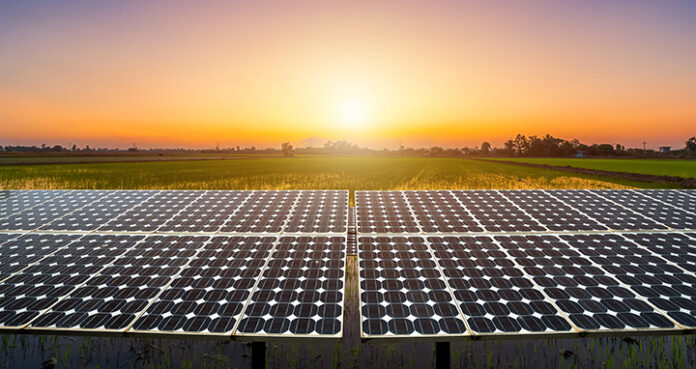Pakistan’s clean energy transition is facing a critical setback as the government’s recent actions contradict its previous commitment to renewable energy, especially potential changes to buyback rates for rooftop solar installations, according to a news report.
Despite initially supporting solar energy as a solution to rising electricity costs and energy insecurity, the government is now revising key policies, particularly in the net metering sector, leaving citizens and the business community uncertain about the future of solar power in the country.
Solar energy, which contributed around 5% of Pakistan’s total electricity generation in 2025, faces new policy challenges despite growing installations. Between 2022 and 2024, solar installations surged as households and businesses took advantage of the government’s net metering scheme, encouraged by favorable buyback rates and incentives. Net-metered capacity jumped from just over 300 MW in 2021 to 2,813 MW by the end of FY25, with over 280,000 households enrolled.
However, the government’s recent move to potentially cut the buyback rate from Rs27 to Rs10 per unit has raised concerns among solar power users.
Pakistan’s electricity demand peaks around 29,000 megawatts (MW) in summer, while the installed generation capacity exceeds 46,000 MW. However, inefficiencies in generation, outdated grid infrastructure, and an increasing reliance on imported fuels contribute to significant underutilization.
Energy experts argue that the revised net metering policy is a response to financial strain on the national grid. Utility companies claim that, as solar users reduce their dependence on grid electricity, they struggle to cover fixed infrastructure costs, which shifted a burden of Rs159 billion onto grid-dependent consumers in 2024. This figure is projected to rise to over Rs4,000 billion in the next decade.
Critics argue that the issue is not with solar energy itself, but with poor planning and a failure to modernise the distribution network. A former power sector official pointed out that the grid was not upgraded to handle reverse power flows, and the government now blames solar users for losses rooted in technical mismanagement and outdated infrastructure.
Pakistan’s energy policy inconsistency is not a new issue. Over the past two decades, various governments have introduced ambitious plans for renewable energy, hydropower, and LNG terminals, only to abandon or reverse them due to shifting political climates, pressure from utility companies, or International Monetary Fund (IMF) reforms.
Energy analysts emphasised that the lack of a unified transition roadmap is the core issue. They argued that a successful shift to clean energy requires aligning grid upgrades, pricing mechanisms, and consumer protection. Without these, piecemeal reforms will not lead to sustainable solutions.




